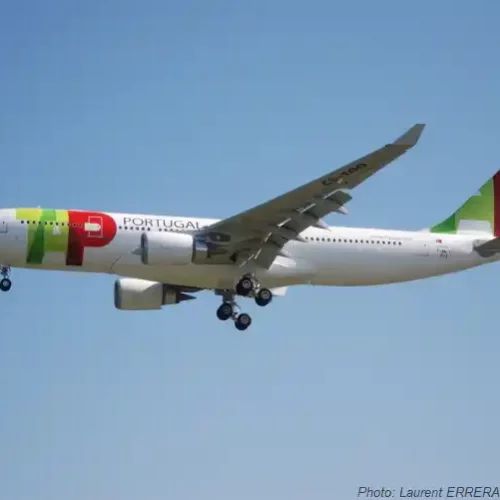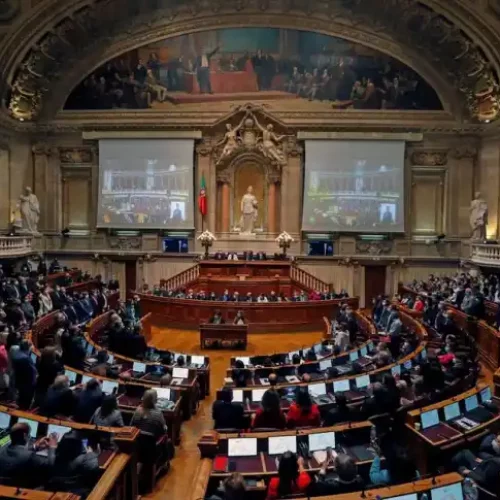Today we write on an overview of the brief History of Portugal. From the ancient rule of Greeks and Phoenicians to its global maritime supremacy. We will cover them all in a series of upcoming articles. But before we begin, let’s get into the outline of Portuguese History.
Towards Western Europe is a nation, Portugal had a rich history characterized by significant achievements. Instead of succumbing to political assimilation by its neighboring countries, Portugal embarked on a remarkable journey along the African coast, eventually reaching India and beyond. This marked the beginning of the colonial era and Portugal went on to establish a formidable empire. However, unrest and revolution eventually disrupted this dominance. Such is the historical narrative of Portugal.
Greeks and Phoenicians
Ancient civilizations like the Greeks and Phoenicians inhabited the Iberian Peninsula thousands of years ago. These cultures established trade colonies in the region, particularly along the Algarve coastline, from where Phoenician voyages originated. Over time, these interactions diminished, and the area attracted the attention of major powers of the time. The Carthaginians gained control over parts of Iberia, leading to escalated conflicts with the Romans.

Roman Empire
The Romans, who had emerged as the dominant force in the Mediterranean, invaded the Iberian Peninsula during the Second Punic War against Carthage. The Romans expanded their territory but faced fierce resistance from indigenous tribes like the Lusitanians and other indo-European groups. Led by Viriathus, the Lusitanians waged a relentless war against the Romans, inflicting humiliating defeats upon them and challenging numerous legions and renowned generals. However, their victories were short-lived as the Romans ultimately defeated them. This integration into the Roman world resulted in the development of many Roman cities from pre-existing Iron Age settlements, such as Lisbon, Porto, and Coimbra, while other cities like Braga were established by the Romans.
East Germanic Tribe – Visigoths
As the Roman Empire entered a period of decline, numerous Germanic tribes invaded the peninsula and established short-lived kingdoms. Among them, The Suebi managed to firmly settle in the region with their capital in Braga, while the Visigoths gained control over most of Iberia. Eventually, the Visigoths conquered the Suebi Kingdom, becoming the dominant power in Iberia. Although they converted to Catholicism, their societal structure closely resembled their predecessors, emphasizing warrior-like values. However, in the late 7th century, the kingdom faced severe challenges, including famine, plague, high mortality rates, economic difficulties, and labor shortages that affected the Mediterranean region as a whole.

Umayyad Caliphate
A new force emerged in North Africa known as the Umayyad caliphate. At that time, the Visigothic kingdom was internally weak and politically unstable, under the rule of King Roderick who had recently seized power. In 711, the Muslim general Tariq bin Ziyad crossed the Straits of Gibraltar unopposed with an army of 7,000 soldiers. While King Roderick was preoccupied with suppressing a Basque rebellion, Tariq plundered several Visigothic cities. Eventually, King Roderick assembled his forces and marched south. The decisive encounter between the two sides took place at the Battle of Guadalupe, resulting in a devastating defeat for the Visigoths.
Over the following six years, the peninsula witnessed almost complete Muslim conquest. Some Visigoths sought refuge in the Christian kingdom of Asturias, situated in the mountainous terrain, where they would form a resistance against the Muslim invaders. The Muslim conquerors referred to their newly acquired territory in Iberia as ‘Al-Andalus’.
Over time, the Christian kingdoms steadily regained territory, and by the late 15th century, only the Kingdom of Granada remained under Muslim rule. In 1492, the Catholic Monarchs, Queen Isabella I of Castile and King Ferdinand II of Aragon, completed the Reconquista by capturing Granada. This marked the end of Muslim rule in the Iberian Peninsula, and the Catholic Monarchs aimed to establish religious and political unity within their newly unified Kingdom of Spain.
Establishment of Portugal
In the year 1143, Portugal was established following the signing of the Zamora Treaty. This significant agreement, endorsed by D. Afonso Henriques, the first King of Portugal, and Alphonse the VII of León and Castile, granted recognition to Portugal as an independent kingdom. The confirmation of this status as an independent kingdom was later affirmed by Pope Alexander III in 1179.
Throughout the 12th and 13th centuries, the Portuguese monarchs progressively expanded their borders, ultimately conquering the Algarve and solidifying a territory that has remained largely unchanged to this day.
With the establishment of defined borders, Portugal began to focus inward. Towards the end of the 13th century, King D. Dinis founded the prestigious University of Coimbra, which stands as one of the oldest universities in Europe. In key centers of power, castles, palaces, and cathedrals were constructed, serving to solidify the territorial administration.
In 1385, as a result of a popular movement, D. João I was acclaimed as king, marking the beginning of the second dynasty. The sons of D. João I and D. Filipa de Lencastre were hailed by Luiz Vaz de Camões (“Os Lusíadas”) as an illustrious generation of great princes (“Ínclita geração, altos Infantes”), known for their humanism, education, and governance skills.

History of Portugal – Global Maritime Dominance
During the era of exploration known as the Age of Discovery, Portugal emerged as a prominent maritime power, marking a glorious period in its history. Through the drive of Infant D. Henrique, also known as Henri the Navigator, Portuguese caravels set sail across the seas, utilizing the best available scientific and practical knowledge of that time. Meanwhile, Led by renowned explorers like Vasco da Gama and Ferdinand Magellan, the Portuguese embarked on ambitious voyages, circumnavigated the world, and established lucrative trade routes to Africa, India, and the Far East. This era of exploration and colonization significantly expanded Portugal’s economy, political influence, and global cultural impact.
Decline in Portugal’s power
However, the 16th and 17th centuries witnessed a decline in Portugal’s power and influence. The country faced economic challenges, such as the loss of its monopoly on trade with the East Indies, as other European powers began to vie for control of profitable trade routes. Moreover, political instability, succession crises, and conflicts with rival nations weakened Portugal’s position.

1755 Lisbon Earthquake
In 1755, an devastating earthquake struck Lisbon, resulting in one of the most catastrophic and deadly seismic events in history. More than a third of the population in the Portuguese capital perished, and tens of thousands who survived the earthquake fell victim to the ensuing tsunami triggered by the seismic activity.
Invasion by Napoleon’s Forces
In the early 19th century, Portugal faced an invasion by Napoleon’s forces during the Peninsular War. The French occupation and subsequent conflicts caused political and social turmoil in Portugal, including the exile of the Portuguese royal family to Brazil. However, the Napoleonic Wars also ignited a surge of nationalist sentiment, contributing to a renewed Portuguese identity and aspirations for independence.
Portugal becomes a Republic
In 1822, Brazil declared its independence from Portugal, establishing the Empire of Brazil, while the Portuguese monarchy returned to Portugal. The 19th century witnessed political turbulence in Portugal, characterized by frequent changes in government, republican movements, and colonial conflicts. Ultimately, the monarchy was overthrown on 5 October, 1910 leading to the establishment of a republic in Portugal.
History of Portugal in the 20th Century
The 20th century posed significant challenges to Portugal, including its involvement in two World Wars and the transformative Carnation Revolution of 1974, which brought an end to the authoritarian Estado Novo regime. Portugal transitioned to democracy and granted independence to its African colonies. In 1986, Portugal joined the European Economic Community (EEC), now known as the European Union (EU), experiencing economic growth and further integration with the rest of Europe.
Conclusion
Presently, Portugal stands as a modern democratic nation, characterized by its diverse cultural heritage and thriving tourism industry. Its rich historical legacy, encompassing ancient civilizations, maritime exploration, and colonial endeavors, has shaped its unique identity and contributed to its standing within the global community.
Reference:
- World History Encyclopedia
- History of Portugal by Britannica
- Ministry of Foreign Affairs Website, Portugal
Check out more articles here.







